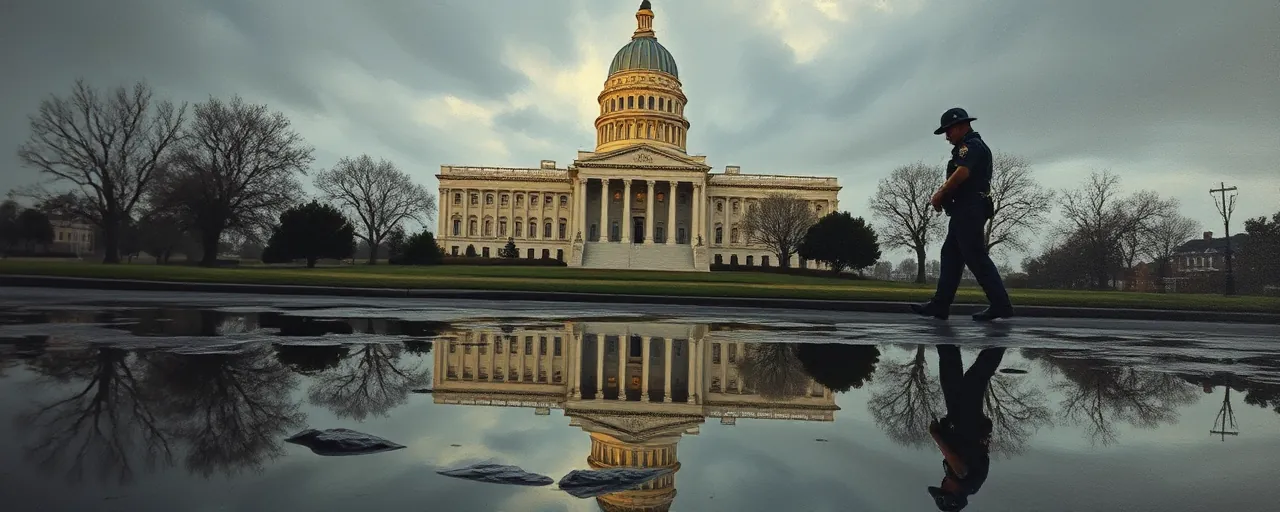A Badge of Courage, A Cry for More
Governor Greg Abbott’s announcement today from Austin hit like a jolt. The 2024 Star of Texas Awards, now open for nominations, promise to shine a spotlight on peace officers, firefighters, and emergency medical first responders who’ve faced the unimaginable, injured or killed in the line of duty. It’s a gesture that feels noble on its face, a chance to etch their sacrifices into the state’s memory. But beneath the polished words lies a stark truth: awards don’t save lives, and they don’t heal the wounds that fester long after the sirens fade.
These men and women, the ones who rush toward danger when the rest of us run away, deserve more than a pat on the back once a year. They’re the backbone of our communities, yet Texas seems content to let that backbone crack under pressure. Look at the numbers, the stories piling up like debris after a storm. Line-of-duty deaths spiked in 2024, with gunfire and traffic crashes carving a grim tally. Meanwhile, the silent killer, suicide, stalks these heroes at rates that dwarf those of everyday Texans. This isn’t just a ceremony we’re talking about; it’s a reckoning we’re avoiding.
Abbott calls them the 'very best of Texas,' and he’s not wrong. But if we’re serious about honoring their heroism, we can’t stop at plaques and handshakes. The state’s duty runs deeper, to the living as much as the fallen. It’s time to ask: why are we celebrating bravery after the fact instead of fighting to keep these people whole in the first place?
The Cost of Valor Left Unpaid
Eligibility for the Star of Texas Awards stretches back to 2003, a nod to decades of service and sacrifice. To qualify, a critical incident, a moment where life hung in the balance, must have occurred by June 13, 2025. It’s a broad net, meant to catch every act of valor. Yet the criteria expose a gap. Recognition hinges on injury or death, not prevention. Compare this to Indiana’s Homeland Medal of Merit, which rewards gallantry beyond duty, or Vancouver’s recent ceremony lauding 19 for complex rescues. Texas could learn something here, about honoring the living before they become statistics.
Statistics paint a brutal picture. Law enforcement saw a 25% jump in line-of-duty deaths last year alone, with traffic fatalities soaring nearly 50%. Firefighters aren’t faring much better; heart attacks and collisions claimed dozens in 2022. Then there’s the mental toll. Over half of New York’s first responders report crushing stress, and Texas can’t claim immunity. PTSD, depression, burnout, they’re as real as any bullet or blaze. Suicide outpaces combat deaths now, a fact that ought to shake us to our core. Firearms, often their own, end too many of these stories.
Advocates for mental health reform have screamed this from the rooftops: we need counseling, peer support, trauma therapies like CBT and EMDR. Programs exist, sure. The First Responders Foundation pushes work-life balance, and crisis lines hum 24/7. But in Texas, where’s the funding? Where’s the mandate? Governor Abbott’s press release glows with pride, yet sidesteps the crisis. Some might argue it’s not the state’s job to play therapist. They’re wrong. When you send people into the fire, you don’t get to shrug when they burn.
Private citizens get a nod in this too, eligible if they’re hurt or killed aiding first responders. It’s a rare, beautiful nod to community spirit, echoing the 'immediate responders' of Hurricane Harvey or the Boston Marathon bombing. But it’s not enough. Community responder programs, pairing trained civilians with professionals, are sprouting nationwide. Texas lags here, too, content to applaud rather than innovate. Recognition is sweet, but safety nets save lives.
Opponents might say budgets are tight, that awards are the best we can do. That’s a dodge. Look back to 2019, when National First Responders Day was born from the ashes of Sean Collier’s death. It took six years of grit to make that happen. If we can rally for a day, we can rally for a system that doesn’t just honor heroes, but keeps them standing.
Beyond the Star, A Call to Act
The Star of Texas Awards will close nominations on June 13, 2025, and the ceremony will come with its usual fanfare. Families will weep, crowds will clap, and for a moment, we’ll feel good about ourselves. But the real work starts when the lights dim. Texas has a chance to lead, to turn admiration into action. Fund mental health care that’s as accessible as a nomination form. Push safety protocols that cut those traffic deaths. Build a culture where seeking help isn’t a weakness but a right.
These first responders, and the citizens who stand with them, aren’t asking for pity. They’re asking for a state that matches their courage with its own. We owe them that much. Awards are a start, but they’re not the finish line. Let’s stop polishing stars and start mending lives.
